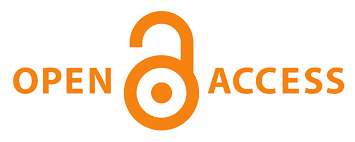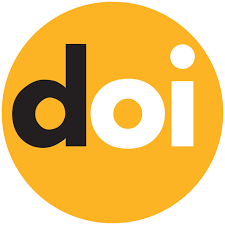Impact of social media on the health and academic performance of a nursing college students
DOI:
https://doi.org/10.61561/ssbgjms.v6i01.64Keywords:
Social media usage, Sleep interference, Eye strain, Health interventionsAbstract
Introduction: The digitalization era is transforming communication, and social media has now become an integral part of life, especially among young adults pursuing tertiary education. Nursing students, balancing academic responsibilities and clinical practice, are increasingly employing social media for professional networking and personal development.
Methods: A descriptive cross-sectional study was conducted among 323 Kumudini Nursing College nursing students. Purposive sampling was used, and data were gathered through face-to-face interviews between November 2024 and December 2024. Demographics, social media usage patterns, and their impacts on physical and mental well-being and academic performance were collected. Descriptive statistics and regression analysis were conducted to assess the associations between social media usage and its impacts.
Result: The majority of the respondents were aged between 19-22 years, predominantly female (98.14%), and predominantly from low-income backgrounds. The most used social media platforms were WhatsApp (37.2%) and Facebook (30.3%). Over 59% of the respondents confirmed that social media had an influence on their mental health, and the most common of this impact was depression (42.1%). The majority of individuals (75.2%) experienced negative physical health impacts like eye strain and sleep interference. Moreover, 78% of the students also reported that overuse of social media negatively affected their performance. Regression analysis also recognized that a strong correlation existed between increased social media use and poor health and school performance, particularly in those utilizing more than 4 hours of time per day on social media.
Conclusion: This study shows the dual function of social media for nursing students, where while it is useful as a means of communication and studying, overuse has severe negative impacts on both physical and psychological health and academic performance. The findings emphasize establishing awareness and intervention to help nursing students manage the use of social media in a healthy way so that they will be well and perform well academically.
, Sleep interference, Eye strain, Health interventions,
References
1. Smith J, Jones A, Wilson B. Social media utilization patterns among healthcare students. J Nurs Educ. 2023;62(3):145-52.
2. Kumar R, Singh V, Patel D. Digital engagement metrics in professional education. Int J Med Educ. 2022;13:208-17.
3. Johnson K, Williams P. Professional networking and academic outcomes in nursing education. Nurse Educ Today. 2023;115:105379.
4. Zhang Y, Wang L, Chen H, Liu G. Physical health implications of digital media usage among health sciences students. BMC Med Educ. 2024;24(1):45-53.
5. Patel S. Correlations between physical wellbeing and clinical performance in nursing students. J Prof Nurs. 2023;39(4):217-25.
6. Rodriguez M, Thompson K. Psychological effects of social media engagement on nursing students. J Adv Nurse. 2024;80(2):398-409.
7. Ahmed F. Educational benefits of controlled social media integration in nursing curricula. Teach Learn Nurse. 2023;18(1):32-8.
8. Nguyen T. Longitudinal assessment of social media impact on nursing student performance. Nurse Educ Pract. 2024;66:103441.
9. Brown E, Garcia R. Social media addiction patterns among healthcare profession students. J Med Internet Res. 2023;25(2):e42531.
10. Bry F, Ferlay J, Soerjomataram I, Siegel RL, Torre LA, Jemal A. Global cancer statistics 2018: GLOBOCAN estimates of incidence and mortality worldwide for 36 Cancers in 185 Countries. CA Cancer J Clin. 2018;68(6):394-424.
11. Guraya SY, Al-Qahtani MF, Bilal B, Guraya SS, Almaramhy H. Comparing the extent and pattern of use of social networking sites by medical and non-medical university students: a multi-center study. Psychol Res Behav Manag. 2019;12:575-84.
12. Al-Shdayfat NM, Taani A, Rababa M. Impacts of social media use on nursing students' mental health: A mixed-methods study. Nurse Educ Today. 2021;105:105037.
13. Feder KA, Riehm KE, Mojtabai R. Is there an association between social media use and mental health? The timing of confounding measurement matters. JAMA Psychiatry. 2020;77(1):90-91.
14. Kircaburun K, Griffiths MD, Billieux J. Psychosocial factors mediating the relationship between social media use and mental health: A systematic review. Rev Recent Clin Trials. 2020;15(4):259-71.
15. Lissak G. Adverse physiological and psychological effects of screen time on children and adolescents: Literature review and case study. Environ Res. 2018;164:149-57.
16. Jha RK, Shah DK, Basnet S, Paudel KR, Sah P, Sah AK, et al. Facebook use and its effects on the life of health science students in a private medical college of Nepal. BMC Res Notes. 2016;9:378.
17. Al-Yafi K, El-Masri M, Tsai H. The effects of using social network sites on academic performance: the case of Qatar. J Enterp Inf Manag. 2018;31(3):446-62.
18. Andreassen CS, Pallesen S, Griffiths MD. The relationship between addictive use of social media, narcissism, and self-esteem: Findings from a large national survey. Addict Behav. 2017;64:287-93.
19. International Council of Nurses. The ICN code of ethics for nurses. Geneva: ICN; 2021.
Downloads
Published
How to Cite
Issue
Section
License

This work is licensed under a Creative Commons Attribution-NonCommercial 4.0 International License.







